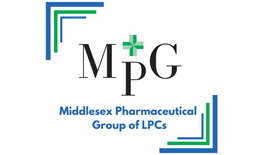The Department of Health and Social Care (DHSC) has now granted the final list of price concessions for December 2022. The latest additions bring the total number of concessionary prices granted for the month of December to 199, surpassing the previous record of 159 granted last month.
Throughout the month PSNC has heard from hundreds of community pharmacy contractors who are having to pay inflated prices for antibiotics used for the treatment of Strep A and who have rightly been concerned about the lack of certainty around the final reimbursement prices for these medicines. We therefore welcomed the involvement of the Competition and Markets Authority (CMA) to look into the pricing of antibiotics. But the number of reports we are getting from contractors about medicines price rises are just not acceptable and this goes far beyond the antibiotic crisis.
PSNC remains deeply concerned about the impact that high medicine price rises are having on contractors. As well as making a record number of concessions requests to DHSC, we are continuing to warn them that this situation is simply not sustainable or acceptable. DHSC needs to investigate why there is consistently such a high number of products unavailable at or below Drug Tariff price and more importantly, pharmacies simply should not be forced to keep funding the gap between the reimbursement and purchase prices for these medicines.
With medicine supply and pricing issues exacerbating the precarious financial situation that many contractors were already facing, PSNC is continuing to press for a fairer and more timely price concessions system to protect pharmacies from these devastating price rises. The review of the price concessions system is well underway and our meetings with DHSC have been constructive. However, given the current situation, we are pressing officials to expediate this work as a matter of urgency.
Further information
Whilst PSNC will continue to work to mitigate the overarching issues, there are some practical steps that contractors and their teams can take to help manage the situation and support our work.
Try contacting a range of different wholesalers and suppliers to locate stock at or lower than Drug Tariff price;
Report issues where the product can only be obtained at a price higher than the Drug Tariff listed price using PSNC’s online form;
Check for any known supply issues in the Medicines Supply Tool hosted on the Specialist Pharmacy Service (SPS) website (any new shortages can be reported to PSNC here). Access to the Medicines Supply Tool requires registration with an NHS email address.
Report any new medicine shortages not listed on the SPS website using PSNC’s online reporting form.
Check for any current Serious Shortage Protocols (SSPs) that may allow alternatives to be given without needing to go back to the prescriber;
Provide affected patients with a copy of this medicines supply factsheet; and
Liaise with the GP to see if an alternative treatment can be provided.
If you face verbal abuse from patients due to medicine supply issues, please don’t feel like you have to tolerate it. The pharmacy regulations say that if a contractor or their staff (or other people at the premises) are threatened with violence, a contractor may refuse to dispense a prescription. This also applies if the person threatens to commit a criminal offence. Obviously, refusal is also an option if any of those threats are carried out.
We are aware of the following resources which may be helpful, and others may be available from other pharmacy support organisations.
NHS materials and guidance for use by primary care staff
Security advice for pharmacies during the pandemic (summary)
Security advice for pharmacies during the pandemic
Key contacts for police services
PSNC will keep pushing for other measures to help pharmacy contractors and their teams.
One of the measures we have to mitigate the impact of medicine supply issues, is price concessions.
PSNC relies on reports of products that are only available at above Drug Tariff prices being made to us by contractors – each month, we look at all those submitted to make applications for price concessions to DHSC. Concession negotiations with DHSC often continue back-and-forth throughout the month and, if we are unable to come to an agreement, DHSC may impose a price that they feel is reflective of the market data they have access to. Read more about how the system works in our briefing: PSNC Briefing 023/22: How the price concession system operates
PSNC works to negotiate price concessions that are as close to market prices as possible. We are also aware of the need to finalise price concessions as early as possible in the month so that contractors have certainty over what they will be reimbursed, which means we also need to finalise prices as quickly as possible. This can sometimes be a delicate balancing act. But we understand the difficult challenges faced by contractors when the final price granted or imposed by DHSC falls below the purchase price they have paid and we will continue to press them on this matter.
It should be noted that as part of the margins survey each year, an exercise is conducted to calculate the financial impact of concession lines on contractors. If an independent contractor selected in the survey sample purchased a sampled drug at a price higher than the final concessionary price, this will be picked up by the margins survey. This is then factored into the overall retained margin survey result and is offset against any excess margin made on other sampled drugs.
The post Record number of price concessions granted in December appeared first on PSNC Website.
